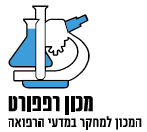
Yitzhak Golombek
Prize for an Established Israeli Artist
Yitzhak (Itche) Golombek was born in 1957 in the city of Lodz, Poland, and came to Israel in 1965, to Or Akiva. He has been involved in the creative arts from a young age. Golombek’s sculptures from the mid-1980s presented a unique voice, a new option for sculpture that is personal and physical, anti-heroic, anti-masculine, exilic, using modest materials, soft and subsiding. In Golombek’s works, objects made of thin plywood sheets are swollen, full of air, in a manner that emphasizes the “nothingness”. Using a technique of softened, bent plywood and black and white photographs, Golombek’s work combines sculpted objects with photographed/painted images. Banal objects identified with refugees and migration such as keys, combs and belts, razor blades, and a roll of toilet paper, drops, tents, burnt matches, and folded mattresses have been condensed into sculptures and populate the body of Golombek’s work in an attempt to recreate roots and home.
In his subjects, Golombek represents an identity whose Israeliness is not self-evident.
In the 1990s, “Second Generation” was added to his body of works – transparent glass display cases, sort of aquariums on legs, containing miniature elements such as pajamas and dried flowers. Golombek’s works raise questions such as how much does a teardrop weigh? What is the shape of a heartache? During the 2000s, Golombek’s artworks were enriched by ready-made materials: combs, pencils, slippers, toys, egg cartons and food items made of plastic. With regard to the objects that he collects, Golombek stated, “I bend down to pick up this something because no one has picked it up,” a description that embodies at one and the same time both his ethics and his aesthetics. Golombek has presented exhibitions in galleries and museums in Israel, Japan and Germany.



